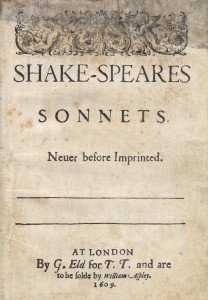In his Sonnet 19, Shakespeare presents the timeless theme of Time’s mutability. As the lover apostrophizes Time, one might expect him to address “old Time” as inconstant, for such an epithet implies time’s changeability. But inconstant also suggests capricious, and the lover finds time more grave than whimsical in its alterations.
With the epithet “devouring” he addresses a greedy, ravenous hunger, a Time that is wastefully destructive. Conceding to Time its wrongs, the lover at first appears to encourage Time to satisfy its insatiable appetite. Indeed, he familiarly addresses Time as “thou” as he commands it harshly to “blunt, n “make the earth devour, n “pluck,” and “burn.” Not only are the verbs “blunt,n npluck,” and “burn” linked by assonance, but also by their plosive initial consonants, so that the Lover’s orders sound off Time’s destructiveness as well. Each line offers a different image of Time at work: on the lion, the earth, the tiger, the phoenix-bird. Time is indiscriminate in its devouring. In the second quatrain, the lover grants to Time its own will: “And do whate’er thou wilt, swift-footed Time,” acknowledging priorly that in its fleet passage Time does “Make glad and sorry seasons. n For the first time one sees Time in other than a destructive capacity–in its cyclical change of seasons, some Time does “make glad” with blooming sweets.
wrongs, the lover at first appears to encourage Time to satisfy its insatiable appetite. Indeed, he familiarly addresses Time as “thou” as he commands it harshly to “blunt, n “make the earth devour, n “pluck,” and “burn.” Not only are the verbs “blunt,n npluck,” and “burn” linked by assonance, but also by their plosive initial consonants, so that the Lover’s orders sound off Time’s destructiveness as well. Each line offers a different image of Time at work: on the lion, the earth, the tiger, the phoenix-bird. Time is indiscriminate in its devouring. In the second quatrain, the lover grants to Time its own will: “And do whate’er thou wilt, swift-footed Time,” acknowledging priorly that in its fleet passage Time does “Make glad and sorry seasons. n For the first time one sees Time in other than a destructive capacity–in its cyclical change of seasons, some Time does “make glad” with blooming sweets.
So the lover changes his epithet from devouring to swift-footed, certainly more neutral in tone. For now the lover makes his most assertive command: “But I forbid thee one most heinous crime. n The final quatrain finds the lover ordering Time to stay its antic “antique pen” from aging or marring his love. It is a heinous crime to carve and draw lines on youth and beauty. ere the Lover no Longer speaks with forceful plosives; his speech, for all the appearance of imperative command, sounds more Like a plea or earnest request. The poet-lover changes his pleaful tone to one of scorn as he finally orders “Yet do thy worst, old Time. Time is no longer devouring or swift-footed, merely old. And age as Time will, the lover realizes “My love shall in my verse ever live young.” Shakespeare eludes swift-footed devouring Time, giving immortality to youth, beauty, and one man’s love through his surviving verse

Figure of speech